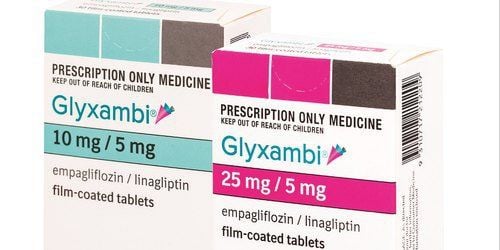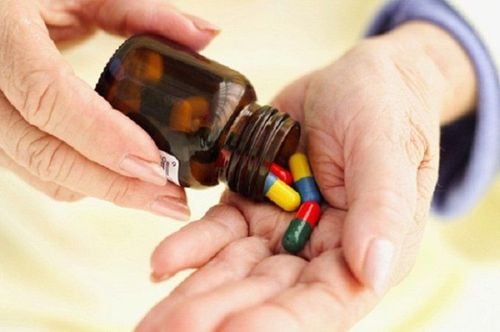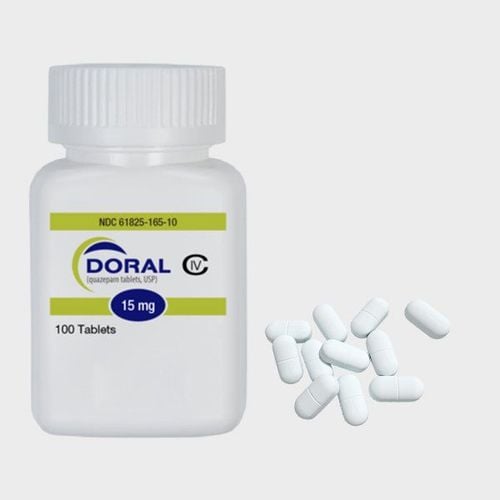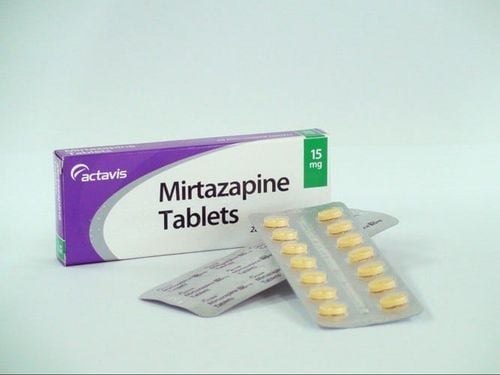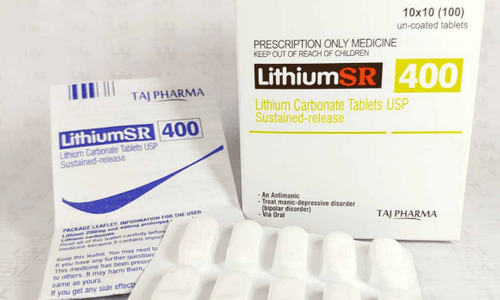This is an automatically translated article.
Chronic depressive disorder (mood disorder, persistent depressive disorder) is a condition that causes symptoms that last for at least 2 years. Patients may have episodes of major depression and periods of milder symptoms.
1. Answer: What is Chronic Depressive Disorder?
Chronic depressive disorder also known as major depressive disorder, persistent depressive disorder. This is a condition in which the patient loses interest in normal daily activities, has no hope, reduced work productivity, has a feeling of loss,... These feelings last for many years, can be significantly affect relationships, school, work, or daily activities.
If you have a chronic depressive disorder, it is often difficult to find a sense of optimism, even in the happiest of times. The patient may be commented by everyone as having a gloomy personality, or being bored, complaining, etc. Although this condition is not as serious as major depression, it also causes quite a lot of troubles for people's lives. sick.
2. Symptoms of Chronic Depressive Disorder
Common symptoms of chronic depressive disorder include:
Loss of interest in daily activities; Frequently feeling sad, empty; Hopeless; Fatigue, lack of energy; Or blame themselves or lose confidence; Difficulty concentrating at work, difficulty making decisions; Frequent irritability, excessive anger; Less dynamic, work efficiency and low productivity; Less participation and integration in social activities; Often feels guilty and worried about the past; Loss of appetite, eating less or eating too much; Sleep disorders ; In children: Depressed mood, irritability,... Symptoms of chronic depressive disorder usually appear and disappear over a period of several years, the intensity of which can change over time. Major depressive episodes can occur before or during persistent depressive disorder - also known as double depression.
When the above feelings persist for a long time, the person should see a doctor. You should talk to your doctor about your symptoms and get appropriate advice. If you are not ready to go to a psychologist, you can talk to a friend, relative or someone you trust. If you think you may be hurting yourself or others, you should tell your loved one right away.
3. Causes of Persistent Depressive Disorder
Currently, experts still do not clearly identify the cause of chronic depressive disorder. Some of the causes mentioned are:
Biological differences: People with persistent depressive disorder have some physical changes in the brain. This degree of change may be the cause of the disease; Brain chemicals: Neurotransmitters in the brain may play a role in depression. Recent research shows that changes in the function and effects of neurotransmitters and how they interact with neural circuits are involved in maintaining a stable mood; Genetics: Chronic depressive disorder is more common in people who have a close relative with the disease; Life events: Traumatic events such as the loss of a loved one, excessive stress, financial problems, etc. can cause persistent depressive disorder.
4. Methods of treating chronic depressive disorder
There are two main approaches used to treat persistent depressive disorder: medication and psychotherapy. The doctor will recommend the patient to choose the right method based on factors: Severity of symptoms, patient wishes, previous treatments, tolerance, problems other emotions,...
4.1 Medication Antidepressants commonly used to treat chronic depressive disorder include:
Selective serotonin reuptake inhibitors; Tricyclic antidepressants; Serotonin and norepinephrine reuptake inhibitors. *Note: Patients should talk to their doctor about the side effects of the drug.
4.2 Psychotherapy Treating depression by talking to a psychologist is the choice of many patients, especially children and adolescents with persistent depressive disorder. The patient and the doctor can discuss the appropriate type of treatment, the goals of treatment, the duration of treatment,...
Psychotherapy helps the patient:
Adjust the mood in times of crisis or difficulty. towel; Identify problems that increase depression risk and change behaviors that may make it worse; Identify negative beliefs and behaviors and replace them with positive, healthy ones; Find better ways to deal with and solve problems; Explore relationships, experience, develop positive interactions with others; Regain a sense of satisfaction, take control of life, relieve symptoms of depression: Hopelessness, anger,...; Learn how to set realistic goals for life.
5. Measures to limit the progression of chronic depressive disorder
Lifestyle and lifestyle changes can help you cope with persistent depressive disorder and limit its progression:
Adhere to the treatment plan: Patients should not give up on these things. psychotherapy sessions or medical appointments. Even though they feel better, the patient should not stop taking the drug on their own, but need to consult a specialist; Learn about your medical condition: You should learn about your medical condition to better adhere to treatment. You should also encourage your family to learn about this pathology so that your loved ones can understand and empathize better; Pay attention to the warning signs: You should talk to your doctor about factors that can trigger symptoms of depression. Then you need to make a plan to know what to do to deal with the symptoms of the disease; Take care of yourself: Eat healthy, get enough sleep, exercise regularly,... Good exercises for health are walking, jogging, gardening, swimming, yoga,... In addition In addition, you should pay attention to get enough sleep, avoid insomnia because sleep plays a very important role in physical and mental health; Avoid alcohol and drugs: They can make depression worse and make it harder to treat. When suffering from chronic depressive disorder, the patient should see a psychologist and follow all the doctor's instructions to have more positive thoughts and behaviors, not to indulge in melancholy, sadness, ...
Vinmec International General Hospital is the address for examination, treatment and prevention of diseases, including Neurology. When performing the examination process at Vinmec, customers will be welcomed and used modern facilities and equipment along with perfect medical services under the guidance and advice of experts. Good doctors, well-trained both at home and abroad. Therefore, when there are signs of chronic depressive disorder or mental health abnormalities, you can go to Vinmec for intensive examination and treatment.
Please dial HOTLINE for more information or register for an appointment HERE. Download MyVinmec app to make appointments faster and to manage your bookings easily.




